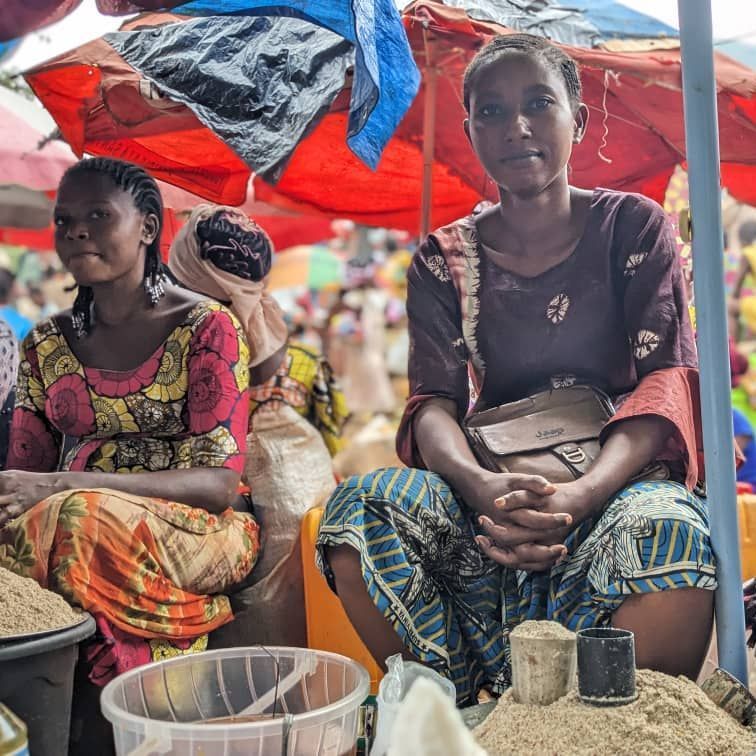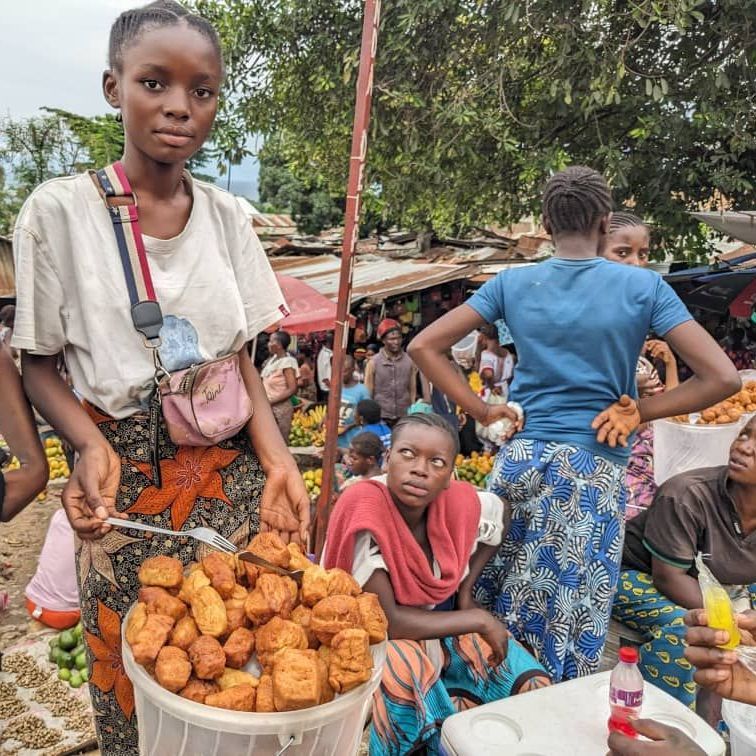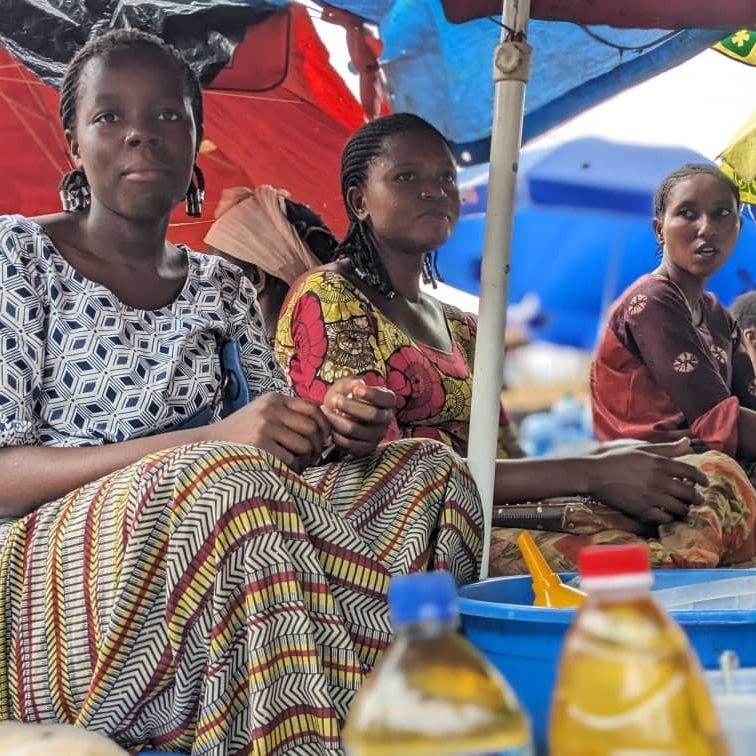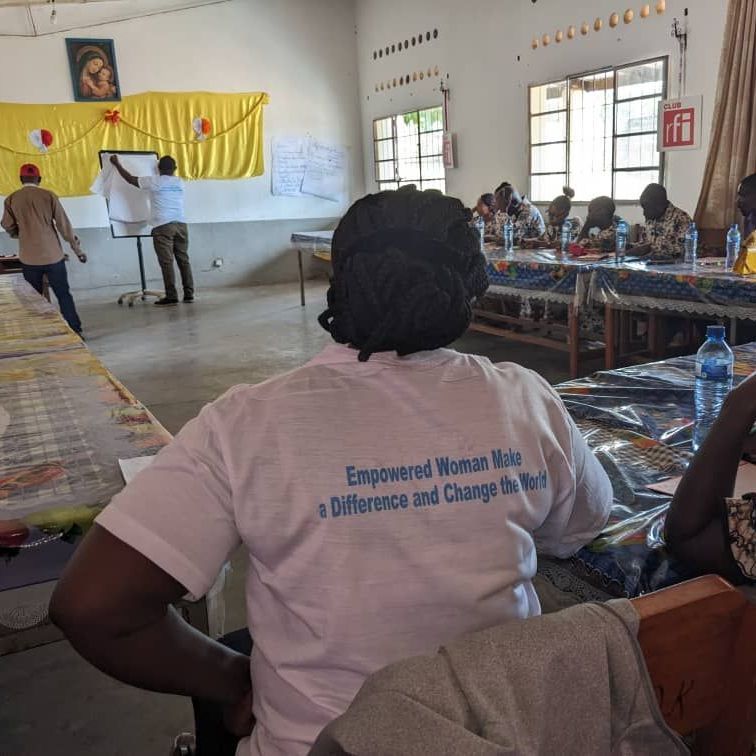DR Congo
DR Congo
DR Congo
KETAAKETI works in the Democratic Republic of Congo with the local non-governmental organization Indegenous Women For Health And Equality
(since 2023).
KETAAKETI works in the Democratic Republic of Congo with the local non-governmental organization Indegenous Women For Health And Equality
(since 2023).
KETAAKETI works in the Democratic Republic of Congo with the local non-governmental organization Indegenous Women For Health And Equality
(since 2023)
Why DR Congo?
The Democratic Republic of Congo (known as Zaire from 1971 to 1997) is the largest country in Africa south of the Sahara in terms of area. The almost 100 million inhabitants can be divided into more than 200 ethnic groups. There is a great diversity of languages, the common language is French. About half of the inhabitants are Catholic.
Why DR Congo?
The Democratic Republic of Congo (known as Zaire from 1971 to 1997) is the largest country in Africa south of the Sahara in terms of area. The almost 100 million inhabitants can be divided into more than 200 ethnic groups. There is a great diversity of languages, the common language is French. About half of the inhabitants are Catholic.
Why DR Congo?
The Democratic Republic of Congo (known as Zaire from 1971 to 1997) is the largest country in Africa south of the Sahara in terms of area. The almost 100 million inhabitants can be divided into more than 200 ethnic groups. There is a great diversity of languages, the common language is French. About half of the inhabitants are Catholic.
The DR Congo is crossed by the equator. Accordingly, the climate is warm and humid. Large parts of the country, especially the so-called Congo Basin, are covered by tropical rainforest. High mountain ranges border the basin to the east and south. Large deposits of sought-after mineral resources can be found here, especially in the east.
The population of Congo is one of the poorest in the world. A 2006 study by the Congolese government found that 76% of the population could not send their children to school, 79% were malnourished, 81% did not have adequate housing and 82% had no access to medical care. In 2018, the number of people suffering from hunger in the eastern provinces was estimated at five million.
In the east of the DR Congo lie the provinces of North and South Kivu, which have been most affected by the armed conflicts of the last 50 years. South Kivu borders Lake Kivu and Lake Tanganyika to the east, and thus Rwanda and Burundi. The central administration in Kinshasa has little influence; the province has its own administration for its approximately 6 million inhabitants.

In the repeatedly flaring up armed conflicts between the regular army and various rebel groups and armed gangs, human rights are hardly respected. Rape was and still is a weapon of war, and there are repeated reports of mass rapes.
The DR Congo is crossed by the equator. Accordingly, the climate is warm and humid. Large parts of the country, especially the so-called Congo Basin, are covered by tropical rainforest. High mountain ranges border the basin to the east and south. Large deposits of sought-after mineral resources can be found here, especially in the east.
The population of Congo is one of the poorest in the world. A 2006 study by the Congolese government found that 76% of the population could not send their children to school, 79% were malnourished, 81% did not have adequate housing and 82% had no access to medical care. In 2018, the number of people suffering from hunger in the eastern provinces was estimated at five million.
In the east of the DR Congo lie the provinces of North and South Kivu, which have been most affected by the armed conflicts of the last 50 years. South Kivu borders Lake Kivu and Lake Tanganyika to the east, and thus Rwanda and Burundi. The central administration in Kinshasa has little influence; the province has its own administration for its approximately 6 million inhabitants.

In the repeatedly flaring up armed conflicts between the regular army and various rebel groups and armed gangs, human rights are hardly respected. Rape was and still is a weapon of war, and there are repeated reports of mass rapes.
The DR Congo is crossed by the equator. Accordingly, the climate is warm and humid. Large parts of the country, especially the so-called Congo Basin, are covered by tropical rainforest. High mountain ranges border the basin to the east and south. Large deposits of sought-after mineral resources can be found here, especially in the east.
The population of Congo is one of the poorest in the world. A 2006 study by the Congolese government found that 76% of the population could not send their children to school, 79% were malnourished, 81% did not have adequate housing and 82% had no access to medical care. In 2018, the number of people suffering from hunger in the eastern provinces was estimated at five million.
In the east of the DR Congo lie the provinces of North and South Kivu, which have been most affected by the armed conflicts of the last 50 years. South Kivu borders Lake Kivu and Lake Tanganyika to the east, and thus Rwanda and Burundi. The central administration in Kinshasa has little influence; the province has its own administration for its approximately 6 million inhabitants.

In the repeatedly flaring up armed conflicts between the regular army and various rebel groups and armed gangs, human rights are hardly respected. Rape was and still is a weapon of war, and there are repeated reports of mass rapes.
INDIGENOUS WOMEN FOR HEALTH AND EQUALITY
INDIGENOUS WOMEN FOR HEALTH AND EQUALITY
INDIGENOUS WOMEN FOR HEALTH AND EQUALITY
is an independent, non-profit, non-political, non-denominational organization with no ethnic, racial or tribal affiliation, founded in 2020 in the South Kivu district by a group of indigenous women and girls to fight against their lack of empowerment and the gender inequalities they face in local and national communities.
In particular, supporting women who have been abandoned by their husbands after rape, rejected by their families and stigmatized by the village has become a core area of work for IWHE.
The founder and director of the organization is a young doctor who provides medical and psychological care, and with the help of microfinance under the KETAAKETI model, the women's self-confidence is strengthened and they are enabled to lead independent lives. The first three groups of 10 women each started here in September 2023.

"Together we will do a lot of good."
Dr. Esther Allenge
is an independent, non-profit, non-political, non-denominational organization with no ethnic, racial or tribal affiliation, founded in 2020 in the South Kivu district by a group of indigenous women and girls to fight against their lack of empowerment and the gender inequalities they face in local and national communities.
In particular, supporting women who have been abandoned by their husbands after rape, rejected by their families and stigmatized by the village has become a core area of work for IWHE.
Dr. Esther Allenge, the founder and director of the organization, is a young doctor who provides medical and psychological care, and with the help of microfinance within the KETAAKETI model, the women's self-confidence is strengthened and they are enabled to lead independent lives. The first three groups of 10 women each started here in September 2023.

"Together we will do a lot of good."
Dr. Esther Allenge
is an independent, non-profit, non-political, non-denominational organization with no ethnic, racial or tribal affiliation, founded in 2020 in the South Kivu district by a group of indigenous women and girls to fight against their lack of empowerment and the gender inequalities they face in local and national communities.
In particular, supporting women who have been abandoned by their husbands after rape, rejected by their families and stigmatized by the village has become a core area of work for IWHE.
The founder and director of the organization is a young doctor who provides medical and psychological care, and with the help of microfinance under the KETAAKETI model, the women's self-confidence is strengthened and they are enabled to lead independent lives. The first three groups of 10 women each started here in September 2023.

"Together we will do a lot of good."
Dr. Esther Allenge
Seed funding projects in the DR Congo
Seed funding projects in the DR Congo
Seed funding projects in the DR Congo

Start of seed funding

Project manager Joseph Mbokani (second from right) talking to some women from the seed funding group

Start of seed funding

Project manager Joseph Mbokani (second from right) talking to some women from the seed funding group

Start of seed funding for this woman

Project manager Joseph Mbokani (right) talking to some women from the seed funding group

The first women receive seed funding.

A training of INDIGENOUS WOMEN FOR HEALTH AND EQUALITY

The first women receive seed funding.

A training by the NGO Indigenous Women for Health and Equality

The first women receive seed funding.

A training of INDIGENOUS WOMEN FOR HEALTH AND EQUALITY


